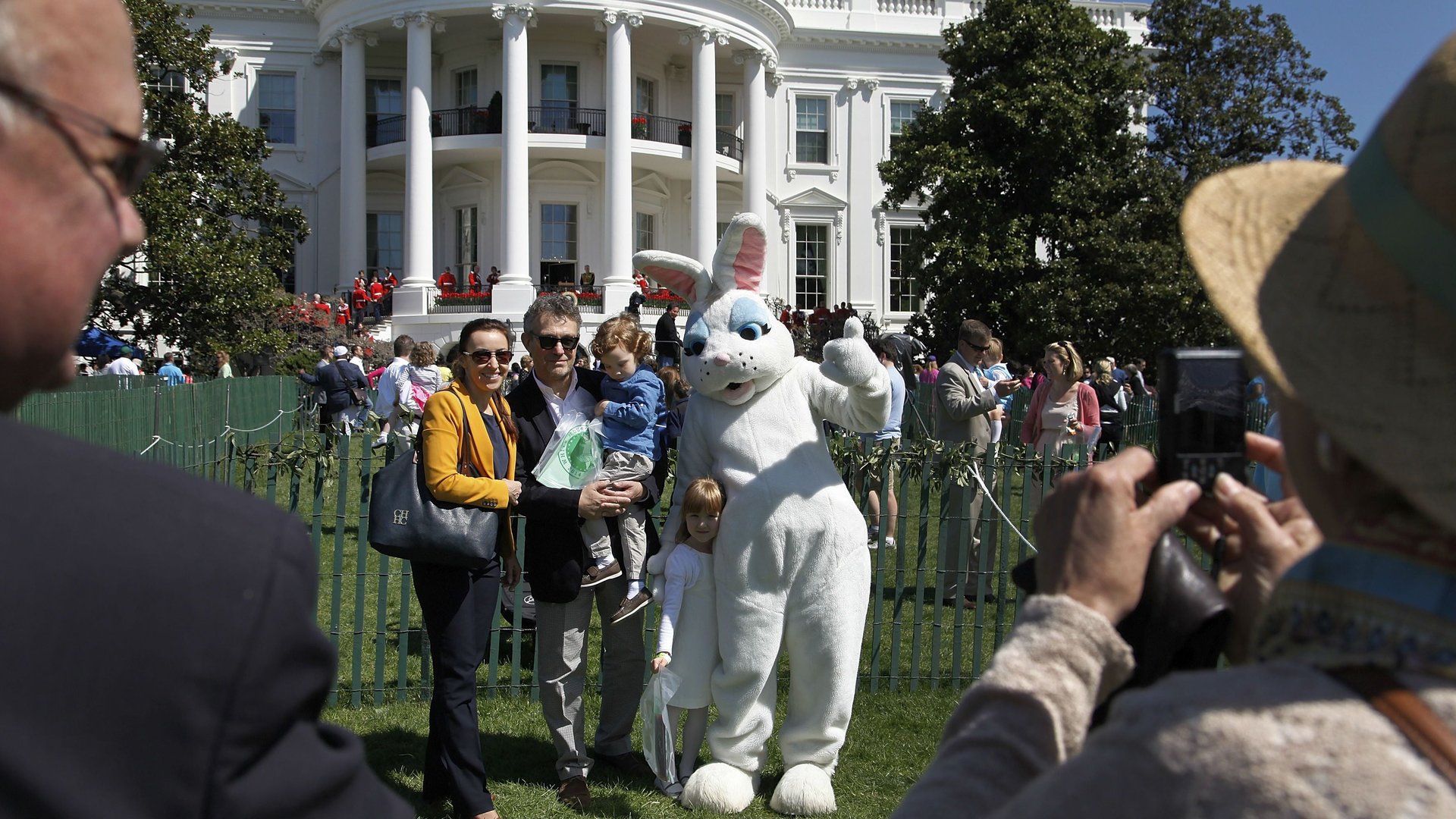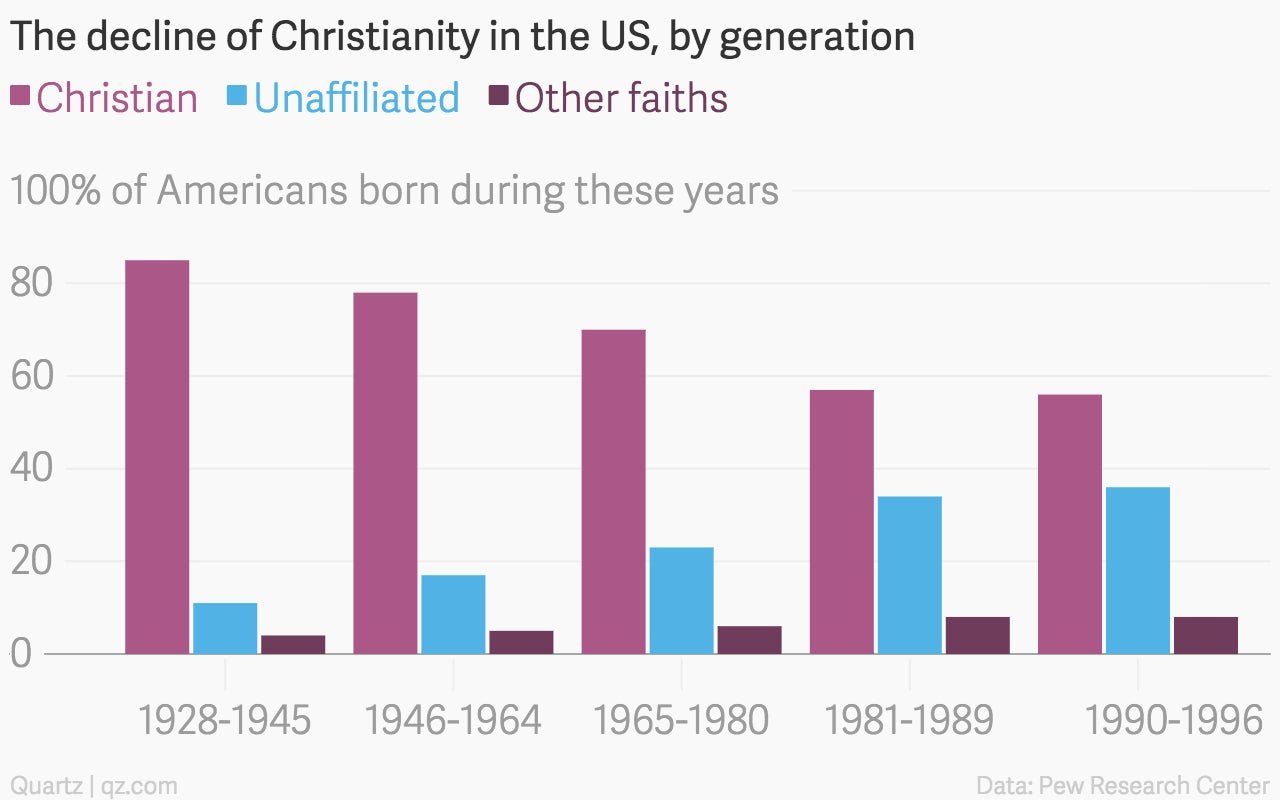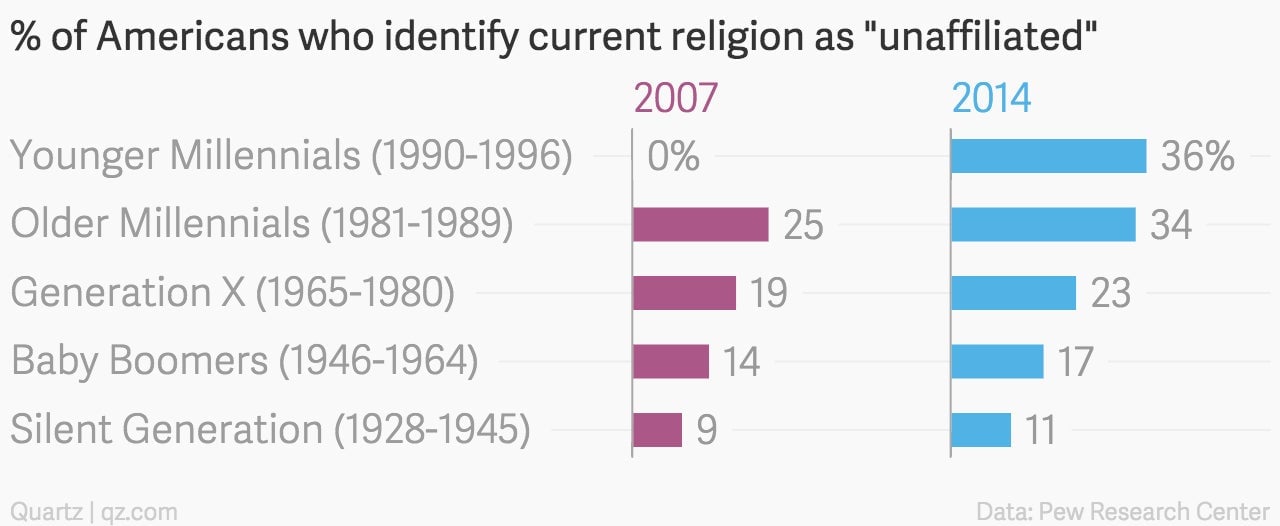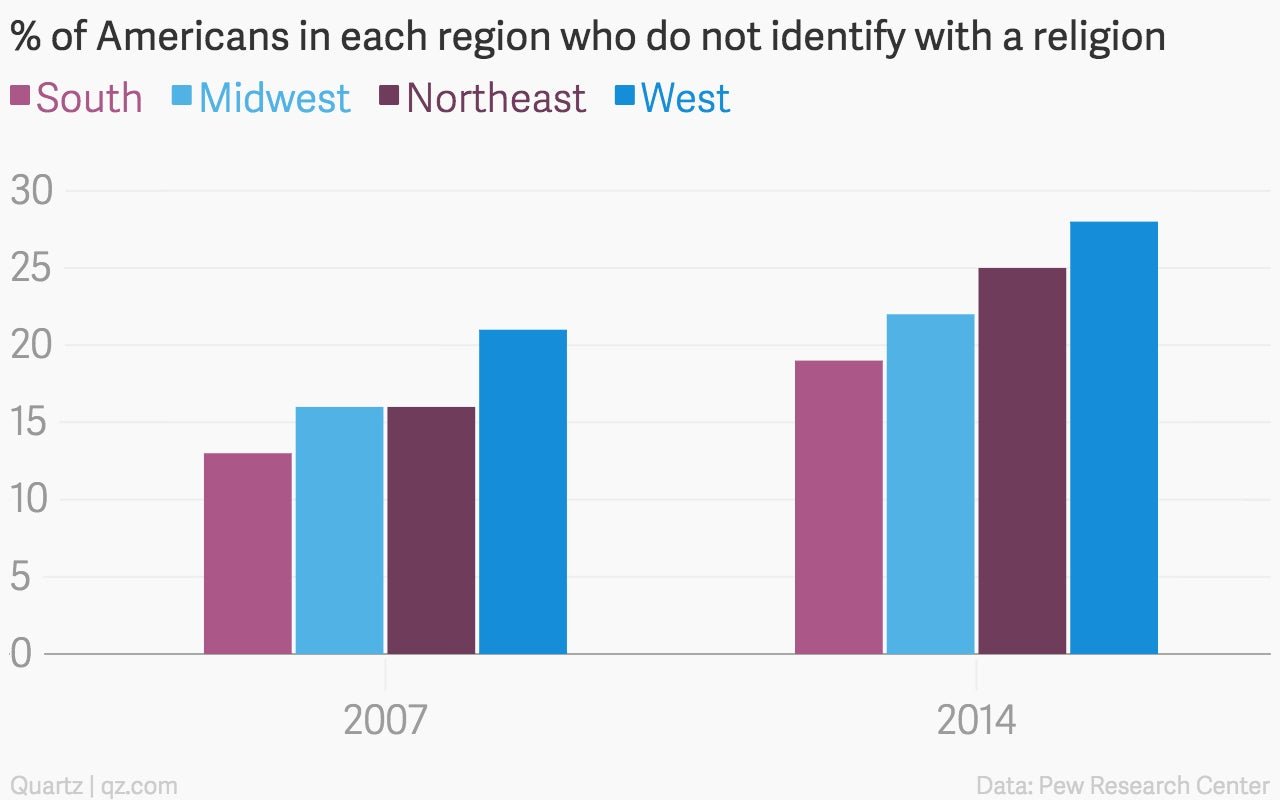In America, Christianity is declining as “non-religion” takes hold
An unfortunate number of Americans believe, incorrectly, that their country was founded as a “Christian nation.” Not only did the Founding Fathers go out of their way to specifically indicate that it was not a Christian nation, but many of them were not Christian themselves, and were skeptical of all organized religions. James Madison, often considered to be the “father” of the US constitution, was a deist.


An unfortunate number of Americans believe, incorrectly, that their country was founded as a “Christian nation.” Not only did the Founding Fathers go out of their way to specifically indicate that it was not a Christian nation, but many of them were not Christian themselves, and were skeptical of all organized religions. James Madison, often considered to be the “father” of the US constitution, was a deist.
That said, the US has had a predominantly Christian population (like most other Western countries) since its inception. But that dominance appears to be waning. Pew surveyed more than 35,000 Americans over a four-month period last year and found that the Christian share of the population has fallen 8% since 2007.
Meanwhile, the percentage of non-religious Americans is rapidly increasing. Those who identify as atheists, agnostics, or “nothing in particular” jumped 6% since 2007. Other religions, like Islam and Hinduism, have increased slightly as well.

According to Pew, the overall decrease in Christianity was triggered by decreases in the Catholic (5%) and Protestant (3%) populations. The evangelical Christian population, on the other hand, has remained pretty steady. In fact, because the US population has increased since 2007, the sheer number of evangelicals has increased since then as well. Both the percentages and actual amount of Catholics and Protestants have decreased.
Even among the older generations, there’s been a noticeable shift toward non-religion. In 2007, for instance, 19% of Americans born between 1965 and 1980 said they identified as either atheist, agnostic, or nothing in particular. Just seven years later, that number jumped to 23%. (Note: data for “Younger Millennials” were not available in 2007.)

So while the move toward non-religion is certainly dominated by young people, an increasing number of people born before 1980 are disavowing the religions they once subscribed to. It’s not a seismic shift, but it’s significant.
Perhaps more significant, though, is that the rise of non-religion is not confined to regions typically perceived as secular. In the South and Midwest—places traditionally considered more religious—there has been a sizable increase in non-religion over the past decade.

In the West, the unaffiliated outnumber every other religious group, including Catholics and evangelical Christians.
Pew says this is all mostly due to generational replacement. “As the Millennial generation enters adulthood,” the report says, “its members display much lower levels of religious affiliation, including less connection with Christian churches, than older generations.”
Another factor: politics. As some Christian denominations become increasingly political (almost always toward the right), they have alienated some members of the religion.